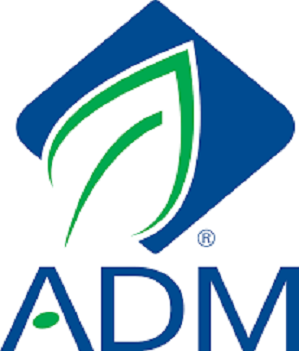Editor's note: The article has been updated to include an official response from ADM, denying the allegations in the lawsuit.
What’s good for the goose is good for the gander, but what might nourish cows might poison horses, and two horse owners have sued ADM for making their feeds for the different livestock species in the same building, potentially putting horses at risk.

Plaintiffs Beth Berarov, of Michigan, and Annelisa Bindra, of South Carolina, filed a putative class action lawsuit in federal court in Chicago on July 19, accusing Illinois-based Archer Daniels Midland of negligence and false advertising of its horse feed products, alleging the agribusiness giant knew it could be posing a fatal risk by making its horse feed in the same facility it used for other animal products.
Berarov and Bindra said they each lost horses after feeding them an ADM product containing a compound known as monensin, which the complaint described as “a chemical additive used to increase weight and market value in cattle.” Making horse feed in the same facility as cattle feed containing the additive, they alleged, “poses an extraordinarily high, unacceptable and undisclosed risk of cross-contamination.”
The women say monensin poisoning can be detected in live horses only a few days after consumption. The usual method for detection is during a necropsy.
“Harm to horses that ingest monensin sometimes occurs gradually, depending on the level of exposure,” per the complaint, “as monensin destroys a horse’s heart fibers, creating a potential for sudden and unexpected heart failure that jeopardizes the lives and safety of both horse and rider.” Animals that survive exposure generally cannot be ridden or worked due to the degree to which the chemical weakens their systems, the complaint said.
In their complaint, the women said the U.S. Food and Drug Administration requires livestock feeds containing monensin to carry a warning about exposure to horses and “also recognizes the particular risk of cross-contamination of medical additives in animal feed.”
The complaint cited verbatim quotes from ADM’s promotional materials touting the health and safety of its livestock food products, as well as a press release issued in response to a horse death at Camelot Farms, where Bindra stabled her horse. In that release, “ADM stated unreservedly and in bold print, ‘Generations of healthy, winning horses have shown that horse feed produced in multi-species facilities is safe.’”
Berarov, who owns and operates Moonlyte Equestrian Center in Carleton, Mich., said she owned 13 horses and cared for six others, all fed exclusively ADM products. In March 2015, she discovered “several of her horses were becoming ill, with symptoms including ‘tying-up’ after little or no exertion, tachycardia, backline deformities, irritability, lethargy and severe weight loss.” Nine of her horses were euthanized, all having “permanent cardiac and skeletal muscle damage as a result of ingesting the (ADM) products,” she alleged.
ADM issued a statement in response.
"We believe the claims are meritless, and we will vigorously defend ourselves," said ADM spokesperson Jackie Anderson. "At ADM Alliance Nutrition, we have been providing safe and nutritious feed and feed ingredients for more than 100 years. Our processes comply with FDA guidelines, and we are confident that our feeds are safe."
The plaintiffs are asking the judge to certify a class of additional plaintiffs, which would include anyone who bought an ADM horse food or supplement. The complaint did not specify the time span within which potential class members may have purchased the horse feed.
Formal allegations against ADM in the complaint included breach of the Illinois Food, Drug and Cosmetic Act, violation of the Illinois Consumer Fraud and Deceptive Business Practices Act, negligent products representation, strict products liability, unjust enrichment and breach of express warranties.
In addition to class certification and a jury trial, the plaintiffs seek a court order requiring ADM to remove the offending statements from its marketing materials and engage in a corrective advertising campaign, and to force ADM to modify its manufacturing process or at least label packaging to inform consumers of the alleged potential harm. They also want restitution, including actual, statutory and punitive damages, and have asked the court to order ADM to repay all profits from the products in question.
Representing Berarov and Bindra in this action are attorneys with the firm of Bailey & Glasser, with offices in Chicago and Charleston, W.Va.
